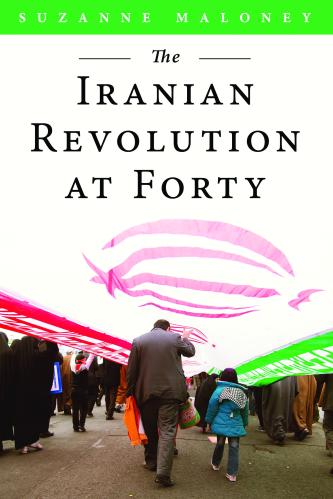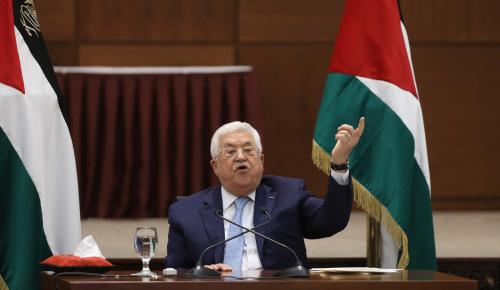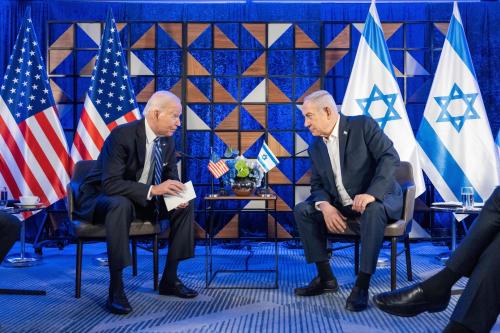Jerusalem’s plan to apply Israeli sovereignty over parts of the West Bank next month poses a unique challenge to geopolitical alliances. As Washington adopts a more assertive China strategy, annexation has become a high-stakes political puzzle.
For years, the U.S. government has been advising Israel, and other allies, to take a tougher stance on Chinese investments. This was a key issue raised during Secretary of State Mike Pompeo’s visit to Jerusalem at the height of the COVID-19 crisis in May.
Pompeo warned about furthering economic ties with China, particularly regarding a competitive Chinese bid to build the world’s largest desalination plant near an Israeli military base. While the Ministry of Defense has been very cautious when dealing with China, other Israeli government agencies including the ministries of economy, agriculture, transportation, and energy — which oversee projects like desalination — have been less sensitive to the possible threats that come with Chinese business.
Israel ultimately rejected the offer, yet the necessity to nationally distance from Beijing remains, notwithstanding that bilateral ties with China were made precisely to weather a challenge like annexation. Israeli Prime Minister Benjamin Netanyahu worked hard to build diplomatic and economic ties with other major global players so that Israel would have leverage to mitigate or overcome unwelcome policy pressures from the United States and/or Europe. But now that President Trump has made China a major issue in U.S. bilateral relations, the leverage is weakened.
After the U.S., China is now Israel’s second-largest commercial partner with $14 billion in annual bilateral trade, accounting for about 10 to 15% of the Israeli economy. According to Israel’s Foreign Trade Administration, Israeli exports to China soared by 402% over the last 10 years, while 22% of all Israeli exports now head to Asia.
Cultivating ties with China has been one important component of Netanyahu’s grand strategy of building national resilience through economic, political, and military strength. So important that in 2013, he intervened in a high-profile terror-financing case against China in order to avoid jeopardizing a burgeoning relationship and his historic visit to the country that year.
For Israel, the appeal of growing diplomatic and economic relations with the world’s second-largest economy was manifold. As Israel witnessed the relative stagnation of European economies in recent years, it looked east to diversify its market. China presented a prime opportunity to expand the tiny nation’s export- and investment-dependent development. In exchange for access to China’s $2 trillion import market, China accesses and invests billions of dollars in the so-called “startup nation’s” civilian technologies.
Chinese commercial ties also protect Israel’s economy from diplomatic challenges that may arise in the West. Israeli-Chinese bilateral relations significantly expanded in 2013 and 2014 with the establishment of the Israel-China Joint Committee for Innovation Cooperation, spearheaded by Prime Minister Netanyahu himself. At that time, relations between the United States and Israel were frosty, due to President Obama’s pursuit of the Iran nuclear deal. In Europe, diplomats were holding Israel singularly responsible for the stagnation of the Middle East peace process. Brussels, under pressure from the Boycott, Divestment, and Sanctions campaign, became a tricky diplomatic arena with the threat of political boycotts lurking.
That threat is now more real than ever. As Israel’s new government contemplates taking a historic shift in its approach to the Israeli-Palestinian conflict, by formally annexing land in the West Bank, it also faces the prospect of severe pressure or punishment from European governments that oppose the move. EU foreign policy chief Joseph Borrell warned that Israeli moves toward applying sovereignty over parts of the West Bank, “if implemented, could not pass unchallenged.” Indeed, German Foreign Minister Heiko Maas traveled to Israel this week to warn again of such consequences.
To deter annexation, leading EU members — including France, Belgium, Spain, Sweden, Luxembourg, and Ireland — have recently threatened Israel with sanctions and even suspension of diplomatic ties. Measures discussed by the bloc include exclusion from trade deals, grants, the Erasmus Plus student exchange, and other significant research and academic projects like Horizon Europe, the EU’s ambitious €100 billion scientific research initiative.
Sweden, Ireland, and Luxembourg are advocating for the most severe measure: suspending the EU-Israel Association Agreement. The EU could also nix its yet-to-be-ratified open skies agreement with Israel. Banning Israel from these initiatives does not require consensus among members; countries that usually back Israel in voting sessions, such as Hungary, the Czech Republic, and Austria, cannot prevent such actions. These measures would be a huge blow to Israel, especially as the EU bloc is Israel’s largest trading partner.
Meanwhile, after years of courting Beijing, Israel is finally awakening to the potential dangers of having the country’s critical infrastructure — such as ports and railways — in China’s hands. Jerusalem is realizing that there are no purely commercial relations with Chinese companies, because companies are ultimately controlled by the Chinese Communist Party (CCP). Israel watched wide-eyed as a Chinese infrastructure project in the port of Djibouti helped lead to a naval base. Chinese boots on the ground in a strategic point in the region would have been unthinkable 10 years ago.
Israel stepped back from the Chinese desalination bid and presumably other Chinese initiatives because of this awakening and U.S. pressure. But it will come at a cost. Not only will rejecting Chinese projects mean choosing more expensive firms, but it will strain Israel-China ties. China could reduce investments in Israel’s high-tech sector or disrupt existing projects.
Israel can address that vulnerability by strengthening its trade with the U.S. through efforts such as the U.S.-Israel Operations-Technology Working Group. But that alone will not make up for lost business from China and the EU. Netanyahu has his work cut out for himself.
Netanyahu was of course not the only leader to sign trade deals with China. It was President Clinton who admitted China into the World Trade Organization (WTO) in 2001. And as Michael Lind writes, American corporations, for years, “have sought to get rich personally by selling or renting out America’s crown jewels — intellectual property, manufacturing capacity, high-end real estate, even university resources — to the elite of another country [China].”
In other words, until relatively recently American leaders of both parties thought the United States could use U.S. global dominance to encourage China to integrate peacefully into U.S.-led norms and institutions. But global politics have moved on from an era of U.S. hegemony, and today we see the return of global great power competition. China has taken a far more aggressive approach internationally, including toward the United States.
Now that the consensus has changed, so has Israel’s calculus on a range of security and economic issues. Annexation is foremost among them. If Israel goes through with annexation now, its economy may suffer from weakened political and economic ties with the EU. This would occur while distancing itself from its economic safety net, Beijing. In this way, annexation could endanger Israel’s economic strength in an era of Chinese aggression, a pandemic, an economic crisis, and fracturing alliances. Israelis must now debate whether the rewards are worth the risks.








Commentary
Israel’s annexation puzzle in the age of great power competition
June 10, 2020